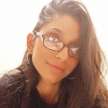Filling the Gap
Finding the words for the page

Writing always terrified me—a treacherous, possibly impossible mountain looming before me. Which seemed strange, especially since I had been reading since before I could tie my own shoelaces. Reading offered the shy, lanky, socially awkward new-girl an escape from the side effects of my father’s job. When I was reading, I didn’t have to worry about making a whole new bunch of friends every few months or explain why I couldn’t make it to that birthday party or make false promises of BFFs forever. Harry didn’t care. Neither did Matilda or James or Anne or Peter or Katniss or Percy or Clary.
Although I didn’t realise it then, reading made me feel plugged into the collective consciousness, the pulse of humanity thrumming through my blood. I felt connected to the people within the pages, to fabricated lives, much more deeply than any figure of flesh and blood in my roiling real world. Entire days were spent holed up in my room, on some fictional adventure with fictional characters in fictional worlds. Addiction is defined as a compulsive engagement in rewarding stimuli despite adverse consequences. I’m sure psychologists would attribute the lack of external interaction to be sufficiently adverse consequence.
And I wanted to write. I thought about writing, dreamt about writing. Hell, I wrote about writing—in secret tween diaries with cheap copper locks and flimsy copper keys. I wrote of aspirations of a secluded house, an office with a typewriter, a dark walnut wood desk at which I would sit, clacking away tales of great adventures, characters, worlds. I don’t know what it was about words on a page, but they were somehow superior to the endless chatter of words off the page. I often wished everyone would just shut up. But raving on a page—perhaps because it was so eternal, so intentional—it was so different.
I read somewhere that there is a whiff of narcissism in creativity. An arrogant need to fill the gap with our own voices. I wanted to be heard. Within a big, loud, opinionated family, I was a bit of an anomaly. Writing was supposed to allow me to express my thoughts, finish them without being interrupted and avoid instantaneous, noisy reaction. And yet, I seemed stuck at the base of the mountain, petrified of the treacherous ascent. So what was missing? It’s not like I lacked ideas. Mr Anderson, who didn’t let girls sign up for baseball in 6th grade; Matthew McConnell, who asked Stephanie Kim if they implanted chips in babies’ brains in China to make them smart; Sister Hope, who preached female modesty to protect the guys from temptation, demonstrating how once chewed, the piece of gum would never be the same. They all made me want to attack the page. Yet, every time I turned a new page and took the tip of my pen to meet the sheet, a voice whispered, Who are you to write this? Who will even want to read this? You know you’re not good enough.
At 16, I lost my father. It was nothing sensational—a drunk driver had crushed him within his car. The mundanity of it hurt. Bad. A few months later, I wandered into my mother’s room in search of a stray boot. The room had changed completely. The traces of my father’s presence had vanished, replaced by an emptiness that would not, could not, be filled. I stood in the middle of that emptiness, feeling myself on the verge of being drawn into its terrible depth.
I picked up my laptop that day.
I wrote a story of a cellist who lost her hearing, drowning in the emptiness around her.
I had braved the climb. Reached the summit.
Mustering some deep, hidden courage, I handed in my masterpiece to my English teacher, Mr Reynolds.
Cliché concept. Some good ideas, but sloppy writing. Has potential.
That’s how he’d ended every obliteration. Has potential.
The summit turned out to be a cliff face. And I turned out to be walking on marbles. Inevitably, I careened off the edge.
But, as you know, I make my living now from writing. I didn’t write of extraordinary adventures or extraordinary characters or extraordinary worlds. So far, I’ve published three novels. Each one told the story of something lost. The first one was of a cellist who lost her hearing, drowning in the emptiness around her. Turns out Mr Reynolds was right.
If there is anything I have learnt, it is this: being a writer is asking the world to reject you. Over and over and over again. The entire journey is an uphill battle. Some days it even feels like I’m walking backwards. Some days I’m thrown off a ledge by my editor, my publisher, my friends, strangers on the street. And yet, I still lay in bed every, single, night, imagining what I will write next. Who I will write next. And each day, the emptiness fades, just the most fractional bit.
About the Creator
Sarah Zach
Reader turned writer






Comments
There are no comments for this story
Be the first to respond and start the conversation.